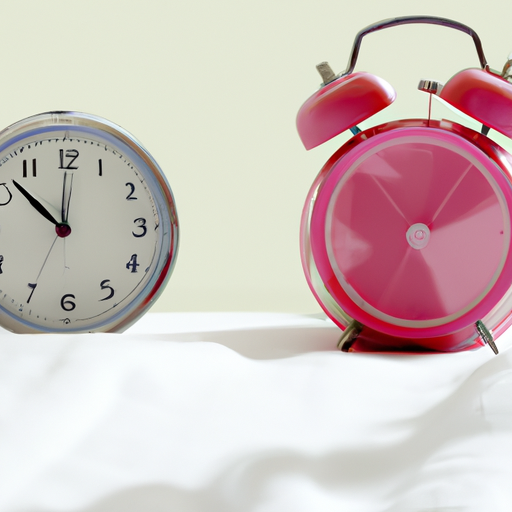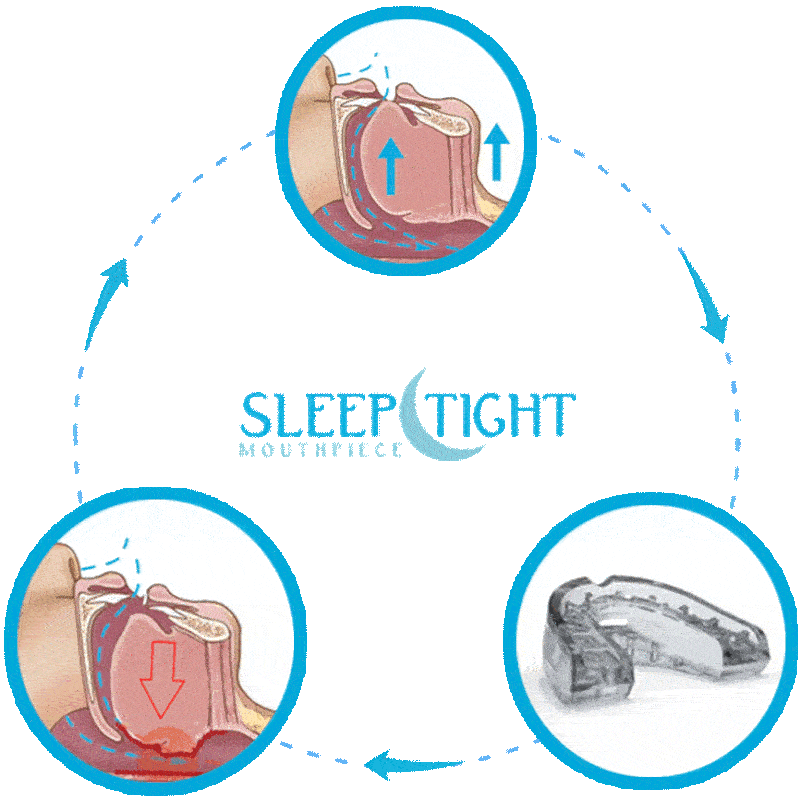Have you ever woken up after a seemingly restful night’s sleep only to feel exhausted throughout the day? It can be frustrating and confusing, especially when you believe you’ve gotten enough sleep. But why does this happen? In this article, we’ll delve into the reasons behind feeling tired even after a full night’s sleep, and you’ll learn more about what could be causing this issue.
There could be several factors contributing to your ongoing fatigue, despite getting a solid amount of sleep. One common explanation is disrupted sleep patterns. While you may have spent the recommended seven to nine hours in bed, the quality of your sleep may have been affected. Factors such as loud noises, an uncomfortable sleep environment, or sleep disorders like insomnia or sleep apnea can all disrupt your sleep and leave you feeling tired. Additionally, certain lifestyle choices like consuming caffeine late in the day or engaging in stimulating activities right before bed can interfere with your ability to get restful sleep. In the next sections, we’ll explore these factors in more detail and discuss strategies to improve your sleep quality, so you can wake up feeling refreshed and energized.

Understanding Sleep Deprivation
What is sleep deprivation?
Sleep deprivation is a condition characterized by a lack of adequate sleep, which can result in various physical and mental health problems. It occurs when an individual consistently fails to get enough sleep to meet their body’s needs. While the amount of sleep needed can differ from person to person, most adults require around seven to nine hours of sleep each night for optimal functioning.
Effects of sleep deprivation on the body
Sleep deprivation can have significant effects on the body, both in the short term and the long term. In the short term, lack of sleep can impair cognitive function, leading to difficulty concentrating, memory problems, and decreased productivity. It can also affect mood, causing irritability, mood swings, and an increased risk of developing mental health issues such as depression and anxiety.
In the long term, chronic sleep deprivation can contribute to a range of health problems. It has been linked to an increased risk of obesity, diabetes, cardiovascular disease, and weakened immune function. Additionally, long-term sleep deprivation can impair the body’s ability to regulate hormones, leading to hormonal imbalances that further impact energy levels and overall well-being.
Common causes of sleep deprivation
There are several factors that can contribute to sleep deprivation. Lifestyle choices such as staying up late to work or engage in recreational activities can lead to a lack of sleep over time. Additionally, factors such as stress, shift work, and environmental factors like excessive noise or light can disrupt sleep patterns and contribute to sleep deprivation. Certain medical conditions, such as sleep disorders, hormonal imbalances, and chronic pain, can also interfere with sleep and contribute to sleep deprivation.
Factors Affecting Quality of Sleep
Sleep disorders and their impact
Sleep disorders are conditions that disrupt the normal sleep pattern, leading to inadequate rest. Common sleep disorders include insomnia, sleep apnea, restless legs syndrome, and narcolepsy. Each of these disorders can have a significant impact on sleep quality and can contribute to feelings of tiredness even after a full night’s sleep.
Insomnia, for example, is characterized by difficulty falling asleep or staying asleep, resulting in fragmented and insufficient sleep. Sleep apnea, on the other hand, involves pauses in breathing during sleep, which can interrupt the restful sleep cycle and lead to daytime sleepiness and fatigue.
Environmental factors that disrupt sleep
The environment in which you sleep can greatly impact the quality of your rest. Factors such as excessive noise, bright lights, uncomfortable temperatures, and an uncomfortable mattress or pillow can disrupt sleep patterns and prevent you from achieving deep, restorative sleep. Creating a sleep-friendly environment by implementing measures such as using blackout curtains, using earplugs or white noise machines, and maintaining a comfortable temperature can help improve sleep quality.
Lifestyle choices that hinder restful sleep
Certain lifestyle choices can hinder the ability to achieve restful sleep. Consuming caffeinated beverages late in the day, engaging in stimulating activities close to bedtime, and using electronic devices before sleep can all interfere with the body’s natural sleep-wake cycle. Establishing a consistent sleep routine and avoiding stimulating activities and substances in the evening can help promote better sleep.
The Role of Circadian Rhythms
Explanation of circadian rhythms
Circadian rhythms are natural, internal processes that regulate our sleep-wake cycle. They are influenced by environmental cues such as light and darkness and help determine when we feel awake and when we feel sleepy. These rhythms are controlled by the body’s master clock, located in the brain, and are responsible for maintaining a consistent sleep-wake schedule.
How disruptions in circadian rhythms affect sleep patterns
Disruptions in circadian rhythms, such as those caused by jet lag, shift work, or irregular sleep schedules, can significantly impact sleep patterns. Our bodies are naturally inclined to follow a regular sleep-wake cycle, and when this rhythm is disrupted, it can lead to difficulty falling asleep, staying asleep, or waking up feeling refreshed. Inconsistent sleep patterns can result in fatigue and a persistent feeling of tiredness, even after a full night’s sleep.
Importance of maintaining a consistent sleep-wake schedule
Maintaining a consistent sleep-wake schedule is crucial for optimizing sleep quality and reducing feelings of tiredness. Going to bed and waking up at the same time each day can help regulate circadian rhythms and promote a deeper, more restorative sleep. It is also important to avoid irregular sleep patterns, such as frequently changing between day and night shifts, as this can disrupt the body’s natural sleep cycle.

Uncovering underlying Health Conditions
Common medical conditions associated with excessive tiredness
Excessive tiredness, even after a full night’s sleep, can be indicative of underlying health conditions. Some common medical conditions associated with excessive tiredness include anemia, thyroid disorders, chronic fatigue syndrome, and fibromyalgia. If you consistently experience feelings of tiredness despite getting enough sleep, it is essential to consult a healthcare professional to rule out any underlying medical issues.
The link between hormonal imbalances and fatigue
Hormonal imbalances can have a significant impact on energy levels and contribute to feelings of fatigue. Conditions such as hypothyroidism, adrenal fatigue, and hormonal fluctuations experienced during menopause can all lead to excessive tiredness. Maintaining hormonal balance through proper medical treatment and lifestyle changes can help improve sleep quality and overall energy levels.
Sleep-related disorders that impact daytime alertness
Certain sleep-related disorders can impact daytime alertness and leave individuals feeling tired, even after sleeping for a sufficient duration. Conditions such as sleep apnea, restless legs syndrome, and periodic limb movement disorder can disrupt sleep patterns and prevent individuals from experiencing restful sleep. Identifying and treating these sleep disorders can help alleviate feelings of tiredness and restore optimal sleep quality.
Psychological Factors and Fatigue
Understanding the connection between stress and tiredness
Stress is a significant contributing factor to fatigue and feelings of tiredness. When the body is under prolonged stress, the release of stress hormones can disrupt sleep patterns and lead to difficulty falling asleep or staying asleep. Additionally, stress can contribute to mental health issues such as anxiety and depression, further impacting sleep quality and energy levels. Practicing stress management techniques such as mindfulness, relaxation exercises, and engaging in enjoyable activities can help reduce stress and improve sleep quality.
Psychological disorders that contribute to exhaustion
Various psychological disorders can contribute to feelings of exhaustion and impact sleep quality. Conditions such as depression, anxiety, and post-traumatic stress disorder (PTSD) are often associated with disturbed sleep patterns and excessive tiredness. Seeking appropriate treatment for these mental health conditions, including therapy, medication, and lifestyle changes, can help address sleep disturbances and improve overall well-being.
Strategies for managing mental health to improve sleep quality
Managing mental health is crucial for improving sleep quality and reducing feelings of tiredness. Engaging in regular exercise, practicing relaxation techniques, maintaining a healthy diet, and seeking support from a mental health professional are strategies that can be employed to support mental well-being and promote restful sleep.
Impact of Diet and Nutritional Deficiencies
How certain foods affect energy levels
Diet plays a crucial role in energy levels and can significantly impact sleep quality. Consuming foods high in refined sugars and unhealthy fats can lead to energy crashes and interfere with the body’s ability to achieve restful sleep. On the other hand, consuming a balanced diet rich in fruits, vegetables, whole grains, lean proteins, and healthy fats can provide the necessary nutrients to support optimal sleep and daytime energy.
Importance of balanced nutrition for optimal sleep
Proper nutrition is essential for maintaining optimal sleep quality. Nutrients such as magnesium, vitamin D, B vitamins, and omega-3 fatty acids have been linked to improved sleep duration and quality. Incorporating a variety of nutrient-dense foods into your diet can help ensure you are getting the necessary nutrients for a good night’s sleep.
Common nutrient deficiencies that lead to fatigue
Certain nutrient deficiencies can contribute to feelings of fatigue and impact sleep quality. Common deficiencies include iron, vitamin D, vitamin B12, and magnesium. If you suspect you may have a nutrient deficiency, it is advisable to consult with a healthcare professional who can conduct tests and provide appropriate supplementation if necessary.
Excessive Daytime Sleepiness (EDS)
Defining and identifying excessive daytime sleepiness
Excessive daytime sleepiness (EDS) refers to an overwhelming and ongoing desire to sleep during the day, despite getting sufficient nighttime sleep. It is characterized by persistent fatigue and a lack of energy during waking hours. Excessive daytime sleepiness can significantly impair daily functioning, including work performance and ability to concentrate.
Relationship between EDS and sleep disorders
Excessive daytime sleepiness can be a symptom of various sleep disorders. Conditions such as narcolepsy, sleep apnea, and restless legs syndrome can all contribute to EDS. Identifying and treating the underlying sleep disorder can help alleviate excessive daytime sleepiness and improve overall energy levels.
Effective coping mechanisms for combating EDS
There are several strategies that can help combat excessive daytime sleepiness. Establishing a regular sleep routine, engaging in regular physical activity, practicing relaxation techniques, and avoiding stimulating substances such as caffeine and alcohol close to bedtime can all contribute to improved daytime alertness. It is also important to prioritize self-care and ensure you are getting sufficient rest and relaxation throughout the day.
Sleep Hygiene Practices
Establishing a relaxing bedtime routine
Creating a relaxing bedtime routine can help signal to your body that it is time to wind down and prepare for sleep. This can include activities such as taking a warm bath, reading a book, practicing relaxation exercises, or engaging in other calming activities. Establishing a consistent pre-sleep routine can help promote relaxation and improve sleep quality.
Creating an optimal sleep environment
Creating an optimal sleep environment can greatly enhance sleep quality. This can involve keeping the bedroom dark, quiet, and at a comfortable temperature. Investing in a comfortable mattress and pillow can also contribute to improved sleep quality. Additionally, removing electronic devices such as smartphones and tablets from the bedroom can help reduce nighttime disruptions and promote better sleep.
Utilizing technology and gadgets for better sleep
Advancements in technology have provided various tools and gadgets that can aid in improving sleep quality. Devices such as sleep trackers and noise machines can help monitor sleep patterns and promote a more restful sleep environment. However, it is important to ensure that these devices are used responsibly and do not contribute to further sleep disruptions.
The Connection Between Exercise and Energy Levels
How physical activity influences fatigue
Regular physical activity has numerous benefits for overall health, including its impact on fatigue levels. Engaging in exercise increases blood flow, boosts energy levels, and stimulates the release of endorphins, which can help combat feelings of tiredness. Regular exercise can also contribute to improved sleep quality, leading to increased daytime energy and reduced fatigue.
Appropriate exercise regimens for improved sleep quality
Engaging in regular exercise can positively impact sleep quality, but it is important to find the right balance. Engaging in intense physical activity close to bedtime can actually interfere with sleep. Instead, aim for moderate-intensity exercise earlier in the day or incorporate relaxation exercises such as yoga or stretching into your evening routine to promote better sleep.
Combining exercise and sleep hygiene for enhanced energy
To maximize the benefits of both exercise and sleep hygiene for enhanced energy levels, it is essential to establish a comprehensive approach. This can include incorporating regular physical activity into your daily routine, prioritizing sleep hygiene practices, and creating a sleep-friendly environment. Combining these strategies can help optimize sleep quality and improve overall energy levels.
Conclusion
Feeling tired even after a full night’s sleep can be frustrating and significantly impact your overall well-being. However, by understanding the various factors that can contribute to persistent tiredness, it is possible to address and overcome this issue. It is crucial to recognize that there is no one-size-fits-all solution, as individual factors can vary significantly. Consulting with a healthcare professional can help identify underlying causes and develop personalized strategies to improve sleep quality and overall energy levels.
By committing to prioritizing quality sleep and implementing lifestyle changes such as maintaining a consistent sleep schedule, creating a sleep-friendly environment, managing stress, and incorporating healthy habits into your daily routine, you can take positive steps toward reducing tiredness and optimizing your overall well-being. Remember, it is important to listen to your body and give it the rest and care it needs to function at its best.



